
In this update:
- Administration Updates
- Legislative Updates
- Other Updates
- Election Updates
Administration Updates
Payne resigns as DNR secretary effective Nov 1st
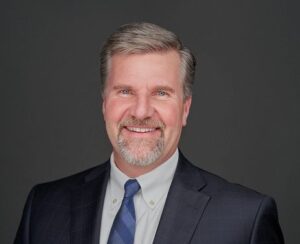 Wisconsin Department of Natural Resources Secretary Adam Payne announced his resignation effective November 1. Sec. Payne was first appointed by Governor Tony Evers (D) to lead the agency in January 2023. In his resignation letter to Gov. Evers, Sec. Payne said he plans to retire so he can spend more time with his family and focus on his personal health and well-being. In response, Gov. Evers’ spokesperson Britt Cudaback said “The governor will be working expeditiously to find a replacement.” Sen. Robert Cowles (R) was “very surprised” to hear the news of Sec. Payne’s departure. “I expected to have an excellent working relationship with him, while also knowing that I would not agree with him on everything and he would not agree with everything that I would want,” Sen. Cowles said.
Wisconsin Department of Natural Resources Secretary Adam Payne announced his resignation effective November 1. Sec. Payne was first appointed by Governor Tony Evers (D) to lead the agency in January 2023. In his resignation letter to Gov. Evers, Sec. Payne said he plans to retire so he can spend more time with his family and focus on his personal health and well-being. In response, Gov. Evers’ spokesperson Britt Cudaback said “The governor will be working expeditiously to find a replacement.” Sen. Robert Cowles (R) was “very surprised” to hear the news of Sec. Payne’s departure. “I expected to have an excellent working relationship with him, while also knowing that I would not agree with him on everything and he would not agree with everything that I would want,” Sen. Cowles said.
Sec. Payne’s announcement comes a week after four of Gov. Evers’ appointees to the Natural Resources Board were rejected by the state Senate with the overwhelming majority of Republicans voting against the appointments. Sec. Payne had not yet been confirmed by the Senate.
Deputy Secretary Steven Little and Assistant Deputy Secretary Mark Aquino remain in their positions at the DNR.
DHS Sec. Johnson on WisEye’s ‘Newsmakers’
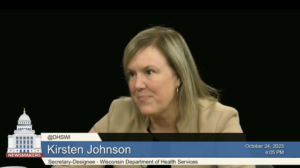
Department of Health Services Secretary-Designee Kirsten Johnson checked-in with WisconsinEye for a ‘Newsmakers’ interview where she discussed some of the challenges faced by DHS including Medicaid redetermination and lagging immunization rates. She also shared her vision for the state’s public health system in 10 years and how she hopes to incorporate technology and artificial intelligence into the healthcare field.
Notable topics of discussion included:
Medicaid Redetermination
- Sec. Johnson said that overall, the Medicaid redetermination process is going well, with the department processing over 130,000 enrollees per month. She predicts that Medicaid enrollment numbers will return to pre-pandemic levels and there is no sort of lingering health concerns from the pandemic.
Immunizations
- Sec. Johnson is concerned about immunization rates among school-age children, pointing to the increasing number of children opting out through special waivers. Even though the current rates are good, she has seen a lot of concern around the COVID-19 vaccine. A recent case of measles in Milwaukee shows that having 5% of students with a waiver creates a vulnerability in the population. That’s why DHS is working to build up the credibility of public health by working with primary care doctors and pediatricians to encourage immunizations.
988 Suicide Crisis Hotline
- Sec. Johnson said the 988 suicide crisis hotline has been successful and received over 900 contacts this year. She said the $17 million in additional federal funds designated for the hotline will be used to expand text messaging and chat messaging services. Texting and chatting takes more manpower because the interaction can take place over a long period a time with the person in crisis messaging the hotline on and off again. The money will also be used for marketing to make sure people know the hotline is available.
A full recap of the interview prepared by Michael Best Strategies can be accessed: click here
Watch the full interview: click here
Evers signs three bills into law
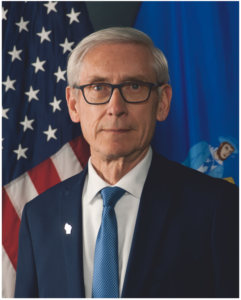 Governor Tony Evers (D) announced that he took action on three bills, signing all into law this week:
Governor Tony Evers (D) announced that he took action on three bills, signing all into law this week:
Senate Bill 120, now 2023 Wisconsin Act 34, authored by Sen. Van Wanggaard (R)
- Allows public safety employees to negotiate with their municipal employer about who is covered in the healthcare plan by an employer, including retired employees.
- Clarifies that the original decision of whether or not to provide healthcare coverage is an allowed subject of bargaining between a municipal employer and public safety employees.
Assembly Bill 364, now 2023 Wisconsin Act 35, authored by Rep. Amanda Nedweski (R)
- Changes to the federal Internal Revenue Code referring to telehealth services and other remote care services for Wisconsin tax purposes, adopting the exception for telehealth or other remote care services with any additional changes in federal law that may occur to the definition of qualifying high deductible health plans in future years.
Assembly Bill 406, now 2023 Wisconsin Act 36, authored by Rep. Terry Katsma (R)
- Updates Wisconsin’s references to the federal Internal Revenue Code to those changes made through Dec. 31, 2022. These changes would apply retroactively for taxable years beginning after 2022, and provisions that would be federalized include but are not limited to: the disqualified income limit for the Earned Income Tax Credit (EITC), EITC claims for married filers filing separately, repeal of the worldwide interest deduction, deadline extensions for federally declared disasters, capital contributions to water and sewerage utilities, exempt facility bonds, college savings plan rollovers to Roth accounts, aviation fuel credit, energy efficient commercial buildings, deferral of tax for certain sales of employer stock to employee stock ownership plans, the ABLE accounts age requirement, and the limitation on deductions for qualified conservation contributions.
- Federalizes the exclusion of capital gains realizations on stock in qualified small businesses, allowing 50 percent for stock acquired after Aug.10, 1993, and before Feb. 17, 2009; 75 percent for stock acquired after Feb. 17, 2009, and on or before Sept. 27, 2010; and 100 percent for stock acquired after Sept. 27, 2010.
Evers announces AI task force members
Governor Tony Evers (D) announced the appointment of thirty members to the Governor’s Task Force on Workforce and Artificial Intelligence. The task force brings together private and public sector leaders to identify policies and investments to advance Wisconsin workers, employers, and job seekers through the technological transformation brought on by the advent of AI. The task force is administered by the Wisconsin Department of Workforce Development (DWD) along with the Wisconsin Department of Administration (DOA) and Wisconsin Economic Development Corporation (WEDC). The task force consists of three subcommittees: Industries, Occupations, and Skills; Equity and Economic Opportunity; and Workforce Development and Educational Solutions.
The first public task force meeting is scheduled for next Monday, October 30, 2023, from 1:00-4:30 p.m. with virtual and in-person options. The in-person meeting will be held at the Concourse Hotel and Governor’s Club (1 W. Dayton St., Madison, WI 53703).
To find the full press release, the list of appointments, and details on the first meeting: click here.
Kaul joins suit against Meta
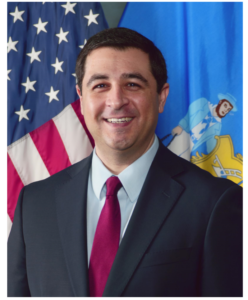 Attorney General Josh Kaul announced this week that he joined 42 other state attorneys general in suing Meta in state and federal court for causing harm to youth mental health. The suits allege that Meta knowingly created and installed harmful features on social media platforms like Instagram that make the platforms addicting to children and teens while at the same time telling the public the features were safe for young users. “We must keep our kids safe—and that includes from dangers online,” said Attorney General Kaul. “Adequate protections should be in place to protect kids from harms associated with social media, and parents must receive accurate information about potential dangers to their kids.”
Attorney General Josh Kaul announced this week that he joined 42 other state attorneys general in suing Meta in state and federal court for causing harm to youth mental health. The suits allege that Meta knowingly created and installed harmful features on social media platforms like Instagram that make the platforms addicting to children and teens while at the same time telling the public the features were safe for young users. “We must keep our kids safe—and that includes from dangers online,” said Attorney General Kaul. “Adequate protections should be in place to protect kids from harms associated with social media, and parents must receive accurate information about potential dangers to their kids.”
Read the federal complaint: click here
Legislative Updates
Proposed Floor Session Dates
Assembly Floor Sessions Scheduled
- November 7
- November 9
- November 14
Senate Floor Sessions Expected
- November 7
- November 14
Plan to fund Brewers stadium renovation gets public hearing in Senate
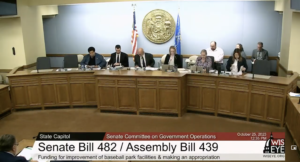
A proposal that would keep the Brewers in Milwaukee until at least 2050 received a public hearing in front of the Senate Committee on Government Operations on Wednesday. Although the plan passed the Assembly last week 69-27 with bipartisan support, its fate in the Senate remains uncertain with Senate Majority Leader Devin LeMahieu (R) saying prior to the hearing the legislation currently lacks the 17 votes needed from the Republican caucus to pass with a simple majority. He said the bill would likely need support from Democrats to clear the Senate. To gain the additional votes, a number of potential changes to the proposal were discussed at the public hearing including:
- A ticket surcharge for non-Brewers events to help offset the amount of public dollars needed for the project.
- A payment in lieu of taxes to the city and county of Milwaukee for any development on Brewers property not related to the stadium, as well as a study committee to examine the feasibility of additional development around the stadium.
- An audit of the stadium district’s finances.
- Changes to the composition of the board that oversees the stadium. As currently proposed, the board would consist of four members selected by the governor, two from the Assembly speaker, two from the Senate majority leader, and one appointment from the governor from a list of people provided by the team.
During the hearing, senators from both parties looked for ways to reduce the amount of state tax dollars required. Sen. Julian Bradley (R) said he thought the team’s share of maintenance costs for the stadium should correlate with its ownership stake in the stadium. He said that although the team owns a 35% share in the stadium, under the current proposal it would only be helping fund 21% of the total maintenance costs. Meanwhile, Sen. Tim Carpenter (D) said he wants an audit of the current stadium board’s finances before any public money is allocated for the stadium. Fellow Democratic Senator Kelda Roys said she wants to see representation for the city and county of Milwaukee added to the future stadium board’s makeup. (Link to WisEye Coverage of the hearing)
Other Updates
State receives regional Tech Hub designation
The U.S. Department of Commerce’s Economic Development Administration (EDA) designated Wisconsin as one of 31 inaugural regional technology hubs. Nearly 400 applications had been submitted for the designation, which comes with a $350,000 planning grant and the chance to apply for up to $75 million in additional federal funding. The funds would help position the Madison and Milwaukee region as a global leader in personalized medicine, an approach to healthcare that uses a patient’s unique genetic code, medical record, and environment to diagnose and treat them. Governor Tony Evers (D) welcomed the announcement from EDA. “Wisconsin’s designation as a Regional Tech Hub is a testament to the strength of our state’s biohealth and personalized medicine industry,” said Gov. Evers. “As this sector continues to grow, it will mean more high-paying jobs and economic growth for our state, as well as innovations that will transform the future of medical care for people in Wisconsin and around the world.”
The state’s application was led by BioForward Inc. and submitted on behalf of the Wisconsin Biohealth Tech Hub Consortium, a group of 15 public and private partners in the field of biohealth technology and personalized medicine. Wendy Harris, a former manager at GE HealthCare, is the regional innovation officer-elect for the Wisconsin Biohealth Tech Hub and will lead the effort to apply for the additional funding. According to the EDA, 5-10 of the designated hubs will be selected to participate in the next phase of the program which includes a $500 million pool of implementation money allocated through the CHIPS and Science Act of 2022. Notably, the $500 million is only the initial appropriation of nearly $10 billion authorized for the Tech Hubs program to boost economic growth capacity in new places.
State Building Commission approves over $388 million in projects
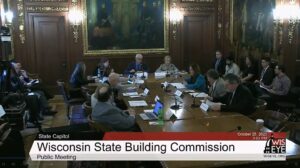
Governor Tony Evers (D) released a statement announcing the State Building Commission approved $388.7 million in projects across the state including $160.6 million to construct a new museum for the Wisconsin Historical Society on the Capitol Square. “The projects approved today by the Commission will not only support jobs, bolster our economy, and improve the quality of life here in Wisconsin, they will help our state grow and build for the 21st Century,” said Gov. Evers. “I am also glad to see the approval of funding for the construction of a new facility for the Wisconsin History Center on the Capitol Square, which will help ensure this important Wisconsin institution remains a hub of statewide history, education, and outreach for future generations.”
For the full press release with the list of projects: click here
Election Updates
Shankland campaign releases poll for 3rd CD Dem nomination
 The campaign of state Rep. Katrina Shankland, a Democratic candidate for Wisconsin’s 3rd Congressional District race, released a new poll this week showing half of likely Dem primary voters were still undecided in the race. The poll of 360 likely Dem primary voters found:
The campaign of state Rep. Katrina Shankland, a Democratic candidate for Wisconsin’s 3rd Congressional District race, released a new poll this week showing half of likely Dem primary voters were still undecided in the race. The poll of 360 likely Dem primary voters found:
- 21% supported Rebecca Cooke (Cooke previously ran for the 3rd CD Dem nomination in 2022)
- 18% support state Rep. Shankland
- 11% support former LaCrosse County Board Chair Tara Johnson
- 1% support Harvard University Student Aaron Nytes
The poll also found Rebecca Cooke had the most name ID in the district with 42% of respondents having some opinion of Ms. Cooke, compared to less than 30% for state Rep. Shankland and Ms. Johnson.
The poll was conducted by Blueprint Polling on October 20-23 using a combination of automated calls to landlines and text messages to cell phones. The margin of error is +/-5.16%. The results are weighted by age, ethnicity, gender, and education based on likely 2024 Democratic primary turnout. FiveThirtyEight rates Bluepoint a B/C pollster.



